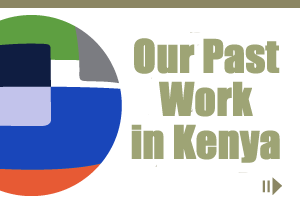The workshop was also attended by representatives from research firms Synovate and Infotrak Harris. The groups gave a robust defence of their practice saying they have always ensured professionalism devoid of the politics of the day. The polling firms say they have clearly laid out guidelines set by the Market and Social Research Association (MSRA) which they always adhere to. They therefore did not see the need for legislating. However, Dr. Khalwale has since the FFM workshop, met the pollsters and the two are now harmonizing the draft bill.
The rise of opinion polls in Kenyan politics has become quite striking. It could be described perhaps as one of the phenomena arising out of the newfound democratic space since 2002. After the landmark 2007 elections, the media has to grapple with the question of whether or not to report findings of political opinion poll firms. This issue has been raised and is awaiting debate in the Kenyan parliament with many MPs keen to have polling firms reined in through a regulation bill. The contention of the Kenyan legislators is; having acknowledged how opinion polls indeed influence voter behaviour, isn’t it scary to imagine a scenario where an unscrupulous political outfit and polling firm cook up findings?
Journalists also had an opportunity to listen to Aaron Erlich; a research consultant who took them through various aspects of opinion polling discourse. Key amongst the issues that keep resurfacing whenever Kenyan opinion polls are interrogated is the sponsorship of the poll; this is a fact the pollsters find hard to reveal
The trainees also learnt that it is quite important that the number of people interviewed (sample size) should also be revealed. This would be important especially in the now quite fashionable TV push polls where the audience is asked to either vote ‘Yes’ or ‘No’ via text/sms.
Nation Media Group Managing Editor Macharia Gaitho argued that the TV push polls should be discarded, unless the media houses give a disclaimer that the polls are not scientific and therefore misleading to some viewers.
Journalists were reminded that for every story that they do on opinion polls, it is important to give the margin of error since it informs how representative the sampling was and determines how accurate the findings are. ‘A sample size that is appropriate can be compared to the amount of sugar in a cup of tea. It is how well it is stirred that will determine whether it is adequate or not, not the number of spoons of sugar’, said Ms. Angela Ambitho, the Chief Executive Officer of Infotrak Harris while participating in the workshop. Given that this is going to be one of the most hotly contested elections in Kenya, opinion polls must have a modicum of credibility if they are not to contribute to rupturing Kenya’s delicate stability.



